Mississippi Cannabis News
NIDA Says It Halted Research-Cannabis Orders Due to DOGE Directive
Published
2 months agoon
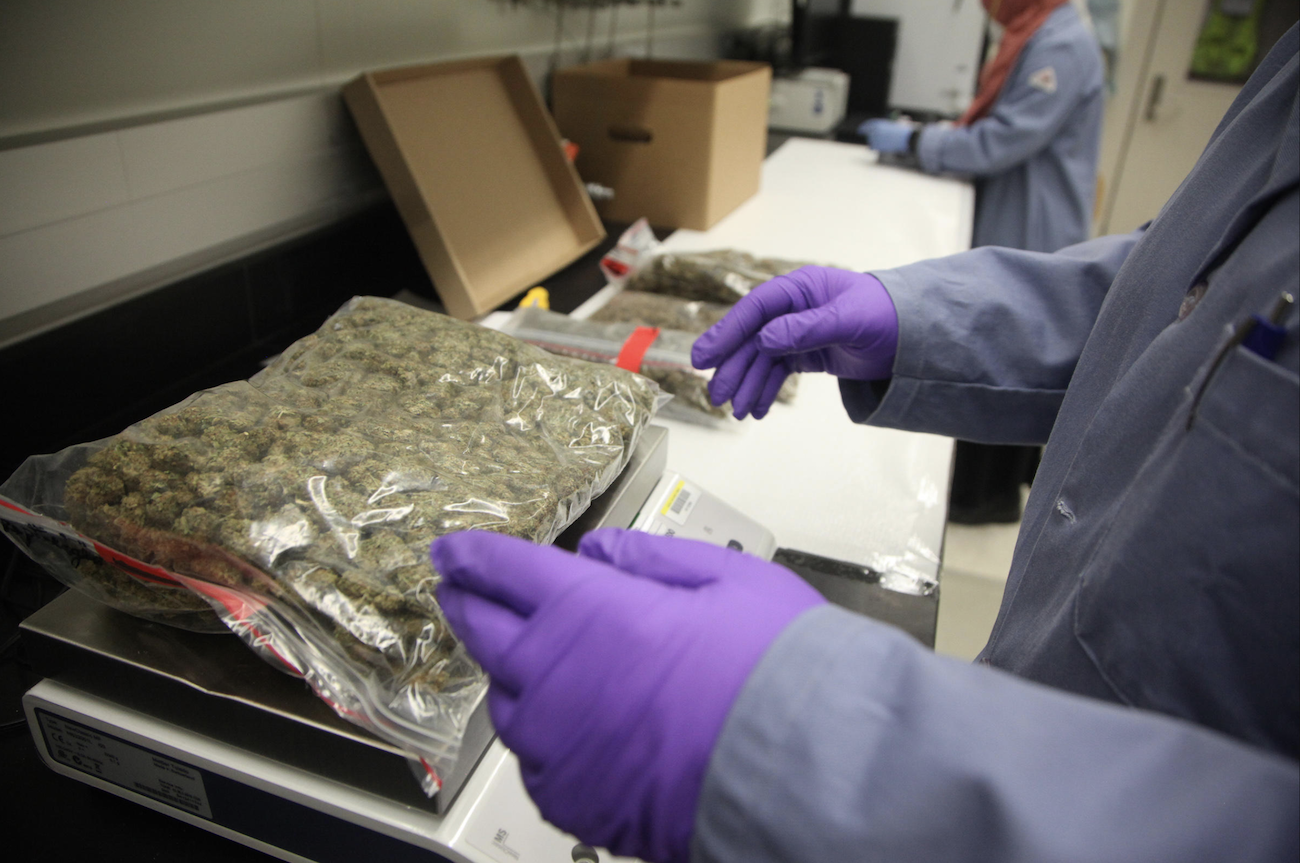
Officials at the National Institute on Drug Abuse (NIDA) say the federal agency’s recent decision to halt its longstanding orders of research marijuana supplied by the University of Mississippi is the result of a cost-cutting directive from the Trump administration’s Department of Government Efficiency (DOGE).
But the move, NIDA said, isn’t expected to interrupt the availability of cannabis for government-approved research.
A recent executive order—titled “Implementing the President’s ‘Department of Government Efficiency’ Cost Efficiency Initiative”—led to the Department of Health and Human Services conducting “a comprehensive review of all existing contracts to identify opportunities for cost reduction,” NIDA representatives said in an email to Marijuana Moment.
“As a result of this initiative, no new task orders for cannabis cultivation have been issued,” the email explained. “That said, the NIDA Drug Supply Program maintains an existing inventory of cannabis and cannabis-derived products, which remain available for approved research.”
NIDA’s email also clarified that while the agency has not issued new orders for research cannabis, its “contract with the University of Mississippi to grow cannabis for research remains in place,” active until 2028.
The agency does not contract with other growers, it confirmed in a follow-up email.
“The NIDA-supported marijuana cultivation contract is only with the University of Mississippi,” it said.
While the University of Mississippi for decades held a monopoly on the production of research cannabis, there are now seven Drug Enforcement Administration (DEA)-approved “bulk manufacturer marihuana growers.” The DEA in recent years has slowly expanded the pool of institutions eligible to produce and provide marijuana for research purposes amid calls by politicians and public health experts to more intensively study the drug.
In the wake of NIDA’s recent halt of its orders, some other DEA-approved cultivators are warning that future marijuana research could be at risk.
Nevertheless, NIDA exclusively contracted Ole Miss to provide marijuana for its Drug Supply Program (DSP), which allows researchers working on federally approved studies to obtain cannabis for free.
In the wake of NIDA’s recent halt of its orders, news of which was first reported by Cannabis Wire, some other DEA-approved cultivators are warning that future marijuana research could be at risk.
Maine-based Maridose said in a July 16 press release, for example, that NIDA’s cancellation “has created uncertainty regarding the future of cannabis research.”
“While existing inventory produced under this program is currently sufficient to support immediate research needs through the end of 2025, there is no assurance that additional product will be available once those supplies are exhausted,” the company said. “This disruption could jeopardize ongoing clinical and preclinical studies, and impede progress on critical cannabis research across the country.”
Researchers conducting federally approved studies can obtain cannabis through any of the DEA-approved cultivators, though materials cost more than going through the free Drug Supply Program.
Growers like Maridose say they’re prepared to fill any unmet demand.
“Our team is committed to working with researchers to ensure uninterrupted access to high-quality materials for both current and future studies,” founder Richard Shain said in the company’s release. “While the loss of the University of Mississippi program may present short-term challenges, Maridose stands ready to help fill that gap.”
Others, however, said there was little risk that NIDA’s move would impact research. A lack of funding and regulatory hurdles as the result of cannabis’s Schedule I status—not a scarcity of research marijuana—are what’s holding back clinical studies, they said.
Sue Sisley, a researcher at the Scottsdale Research Institute (SRI), which is itself a DEA-licensed cannabis cultivator, said NIDA severing its order with Ole Miss “doesn’t affect Scottsdale Research Institute at all.”
“The bottom line is that we are growing our own cannabis and it’s ten times better than anything that’s grown at the University of Mississippi,” an SRI researcher said.
“We grow our own high-quality (comparable to real world) marijuana,” she told Marijuana Moment in an email. “We use it for our own FDA [Food and Drug Administration] studies and we grow to supply other studies. So U Miss closing down new cannabis orders is irrelevant.”
As for barriers to research, Sisley emphasized that there is “barely any new marijuana research happening,” calling the amount of funding available “minuscule compared to other areas.”
“And therefore the demand for new research cannabis is minimal,” she explained.
In fact, Sisley cheered the end of the Ole Miss order.
“This is a brilliant move by the Trump admin,” she wrote. “I applaud this administration for having the courage to finally acknowledge that there was no need to have only one federally legal supplier that was receiving millions in government money annually.”
“The bottom line is that we are growing our own cannabis and it’s ten times better than anything that’s grown at the University of Mississippi,” the researcher added, noting that SRI “just supplied 400 bottles of low-THC cannabis tincture … for a phase 1 trial examining cannabis oil treating autism.”
Sisley and others in past years have complained about the quality of cannabis grown by the University of Mississippi and supplied through NIDA, claiming that some provided samples wouldn’t even pass basic testing standards in state-legal cannabis markets. Nevertheless, a study in late 2024 by researchers at Ole Miss asserted that cannabis produced at the school was “very similar” to products found on state-legal markets.
“There’s been limited demand for NIDA supplied cannabis due to well-documented concerns about quality, consistency, and lack of suitability for pharmaceutical development.”
“The pause between NIDA and Ole Miss highlights what many in the research community have known for years,” Justin Abril, co-founder of DEA-licensed cultivator Royal Emerald Pharmaceuticals, said in an email to Marijuana Moment. “There’s been limited demand for NIDA supplied cannabis due to well-documented concerns about quality, consistency, and lack of suitability for pharmaceutical development.”
“The fact that NIDA reports having excess material on hand speaks for itself,” Abril added. “Now that there are multiple DEA-licensed manufacturers online and news of the intended rescheduling, researchers finally have access to pharmaceutical grade material appropriate for investigational studies.”
Sisley at SRI said it’s time to give other growers—who haven’t had government subsidies—an opportunity to fill the demand for research marijuana.
“Let’s give these other 10 DEA licensed growers a chance to start growing research grade cannabis and taking over where University of Mississippi is now suddenly unfunded,” she said, noting that at SRI, “we’ve never had an opportunity to enjoy government money flowing month after month.”
Even leadership at Maridose, which warned that NIDA’s move could threaten future research, think the University of Mississippi order cancellation could eventually improve the supply of cannabis used for clinical studies.
“The cancellation should have a positive effect on the quality of research because the cannabis obtained from other DEA manufacturers will be more analogous to what is sold to the public,” founder Richard Shain said in an email. “DOGE’s cancellation of the DSP contract makes perfect business sense,” he added, noting that “demand was decreasing and other non-government sources are available.”
Shain also said he doubted the NIDA development signaled skepticism by the Trump administration toward marijuana research generally.
“No manufacturing licenses were canceled and the government grant establishing the Resource Center for Cannabis and Cannabinoids (R3CR) was not affected,” he said, referring to another federally funded marijuana facility housed at Ole Miss. “This seems to indicate the administration support for cannabis research.”
Mahmoud ElSohly—who has long helmed the University of Mississippi cannabis cultivation and research division, contracted as part of NIDA’s Drug Supply Program—declined to offer additional reaction on the order cancellation. In past comments to Marijuana Moment, he’s challenged the claims that the school’s cannabis is of low quality.
Ole Miss “stands ready to leverage its more than 57 years of cannabis research experience to advance the field of cannabis science and meet any future needs NIDA may have.”
An Ole Miss spokesperson, meanwhile, confirmed to Marijuana Moment that “NIDA has chosen not to award the current year task order to the University of Mississippi for cannabis production.”
“The university has two years remaining on its federal contract,” added Jacob Batte, the school’s director of news and media relations, “and stands ready to leverage its more than 57 years of cannabis research experience to advance the field of cannabis science and meet any future needs NIDA may have.”
NIDA’s cancellation of the Ole Miss order comes on the heels of the Trump administration’s Department of Government Efficiency (DOGE) ending a contract in May with the University of Mississippi through which the school monitored cannabinoid content such as THC and CBD in cannabis confiscated by law enforcement.
ElSohly, who also heads that program, said at the time that it was still possible his lab’s work could limp along until the federal funding resumes. But if samples stop flowing to his Mississippi lab, a decades-long history of monitoring THC levels in the illicit US cannabis supply will soon come to an end, he said.
The earlier contract cancellation came about two months after DOGE separately promoted the end of a separate grant meant to fund a study examining cannabis-use risks among LGBTQ+ individuals, non-binary people and heterosexual women.
Despite the cuts to some programs, it’s hardly the end for the University of Mississippi’s involvement in marijuana research.
“The UM School of Pharmacy will continue to play a leading role in the state and around the country in cannabis discovery, innovation and research through the National Center for Natural Products Research, the National Center for Cannabis Research and Education, and the Resource Center for Cannabis and Cannabinoid Research,” Batte said in the statement to Marijuana Moment.
The National Institutes of Health’s (NIH) Resource Center for Cannabis and Cannabinoid Research, hosted at Ole Miss, launched earlier in 2025.
For that project, the university partnered with Washington State University (WSU) and the United States Pharmacopoeia, with support from a grant awarded by the National Center for Complementary and Integrative Health under NIH. Ole Miss is leading the effort’s regulatory guidance core, while WSU will handle research support and USP will focus on research standards.
Ole Miss’s National Center for Natural Products Research is housing the NIH resource center to “provide cannabis research information through an interactive website, webinars, seed funding and conferences” to empower researchers to “generate more science-backed evidence,” it said in a press release at the time.
Classifying cannabis as a Schedule I substance “traps researchers in a paradox: proving medical value requires studies, yet studies are heavily restricted.”
Meanwhile, the Drug Enforcement Administration has ramped up recruitment—recently urging people to join them on the frontlines of the “War on Drugs,” even if they currently work as a “coffee barista” or otherwise have a non-law enforcement background.
It was also recently revealed that marijuana is one of nearly two dozen “controversial or high-profile topics” that staff and researchers at the National Cancer Institute are required to clear with higher-ups before writing about, according to a leaked memo from within the federal agency.
Separately, researchers involved in a federally funded clinical trial around marijuana wrote in a recent article in the American Journal of Medicine that further study into the substance is of “critical importance” given the millions of patients and consumers in legal states, but they warned that government restrictions “stifle scientific exploration of its potential and risks.”
Classifying cannabis as a Schedule I substance, said authors from the University of Maryland schools of medicine and nursing, “traps researchers in a paradox: proving medical value requires studies, yet studies are heavily restricted.”
“As legalization outpaces science,” they added, “reform is imperative to close the evidence gap and meet society’s demands.”
Photograph via the National Institute of Standards and Technology
This story was originally published by Marijuana Moment, which tracks the politics and policy of cannabis and drugs. Follow Marijuana Moment on X and Facebook, and sign up for its newsletter.

Author: mscannabiz.com
MScannaBIZ for all you Mississippi Cannabis News and Information.
You may like
-
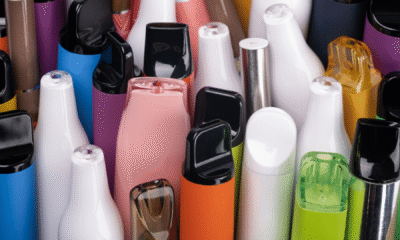

Dozen arrested after south Mississippi bust for illegal sales to underage customers
-
US marijuana laws explained as Donald Trump reveals plans for change
-
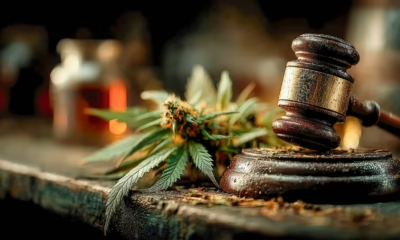

D.C. board rejects ANC 5A challenge to new medical cannabis retailer
-


AG opinion on hemp triggers legal chaos for sellers, consumers
-
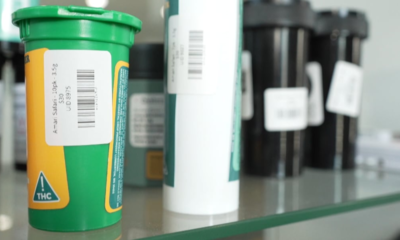

Mississippi Medical Marijuana Association pushing for policy changes
-
Mississippi Cannabis Program Adding 50 Patient IDs Per Day – Ganjapreneur
Mississippi Cannabis News
Dozen arrested after south Mississippi bust for illegal sales to underage customers
Published
4 hours agoon
September 14, 2025
An investigation into south Mississippi businesses selling “alcohol, dangerous illegal vapes, THC edibles,” and other age-restricted or illegal items to underage customers has resulted in at least a dozen arrests with more possible, according to law enforcement.
An announcement by the Perry County Sheriff’s Office said deputies began an investigation in early 2024 after fielding complaints that some businesses in the county were purposely allowing individuals under the age of 21 to purchase age-restricted products.
Sheriff Jacob Garner said as the investigation unfolded, it quickly became clear that the issue was not restricted to Perry County. Law enforcement in nearby Forrest, Lamar, Marion, Greene, Jefferson Davis, and Jones counties had received similar complaints about businesses in their jurisdictions.
Local agencies teamed up with the U.S. Drug Enforcement Agency for over a year’s worth of identifying subjects, initiating traffic stops, and fielding more calls for service. It culminated on Sept. 11 after 20 search warrants were carried out, with 12 individuals being arrested for their involvement in the businesses selling alcohol, tobacco, and THC to minors.
RELATED: Parents urged to talk with students about tobacco risks
“Anyone who chooses to open a business in Perry County for the purpose of selling illegal narcotics, vapes, or THC products to children or adults will be arrested and prosecuted,” Garner said. “These items – disguised as safe or legal – are destroying lives and endangering the health and safety of our citizens. Business owners profiting off the harm of our children and adults in our county will be prosecuted to the fullest extent of the law.”
Garner added that many of the defendants, while operating in different counties, were working in tandem. The Mississippi Bureau of Narcotics, the Mississippi Bureau of Investigation, and the Mississippi Highway Patrol aided in the investigation that remains active.
The following list of arrests and charges has been announced by the involved law enforcement agencies:
- Khaled Alhamidi, 55, of Petal: Two counts of aggravated trafficking of a controlled substance, trafficking while in possession of a firearm, and conspiracy to sell a controlled substance.
- Akram Alhamidi, 25, of Petal: Two counts of aggravated trafficking of a controlled substance, trafficking while in possession of a firearm, and conspiracy to sell a controlled substance.
- Omar Obaid, 40, of Hattiesburg: Two counts of aggravated trafficking of a controlled substance.
- Gaizan Abubaker, 37, of Houma, La.: Two counts of aggravated trafficking of a controlled substance.
- Rami Selah, 32, of Petal: Two counts of aggravated trafficking of a controlled substance, trafficking of a controlled substance while in possession of an enhanced firearm.
- Bassel Saleh, 53, of Petal: Two counts of aggravated trafficking of a controlled substance.
- Mark Shaibi, 24, of Petal: Two counts of aggravated trafficking of a controlled substance, trafficking of a controlled substance while in possession of a firearm.
- Gabr Al-Gabri, 36, of Petal: Two counts of aggravated trafficking of a controlled substance, trafficking of a controlled substance while in possession of an enhanced firearm.
- Basel Rashad, 30, of Petal: Two counts of aggravated trafficking of a controlled substance, trafficking while in possession of a firearm.
- Anmed Elgabry, 30, of Petal: Two counts of aggravated trafficking of a controlled substance, trafficking of a controlled substance while in possession of an enhanced firearm.
- Mohammed Riyadh, 31, of Hattiesburg: Two counts of aggravated trafficking of a controlled substance.
- Ahmedou Mohamedlaamar, 22, of Perry County: Aggravated trafficking of a controlled substance.

Author: mscannabiz.com
MScannaBIZ for all you Mississippi Cannabis News and Information.
Mississippi Cannabis News
US marijuana laws explained as Donald Trump reveals plans for change
Published
3 days agoon
September 12, 2025
Donald Trump is reportedly looking at reclassifying marijuana as a less dangerous drug in the US.
According to an article in the Wall Street Journal, the 79-year-old president is ‘looking at’ making a huge change, which would make it easier to buy and sell weed, making the multibillion-dollar industry more profitable.
The publication’s sources claimed that during a recent fundraiser held at his New Jersey golf club, where tickets for the event went for a whopping $1 million each, the Republican leader first spoke of the potential plans.
He allegedly said he was ‘looking at’ possibly changing the classification of marijuana from a Schedule I controlled substance to a Schedule III substance.
In simple terms, this doesn’t mean it would make the drug completely legal across the US, but it would help ease restrictions on it.

Donald Trump is reportedly considering whether to reclassify marijuana in the US (Bloomberg/Getty Images)
At the event, speaking of tweaking the federal restrictions for the drug, Trump allegedly said: “We need to look at that. That’s something we’re going to look at.”
Then, according to The Telegraph, speaking at a press conference on Monday, the US president affirmed: “We’re looking at reclassification, and we’ll make a determination over, I’d say, the next few weeks.”
He reportedly added that the decision is ‘very complicated’ – so, let’s break it down.
How do US marijuana laws work?
At a federal level, marijuana remains illegal in the US as per the 1970 Controlled Substances Act, however, many states have made their own rules for cannabis use.
As we mentioned earlier, it’s federally classified as a Schedule I drug – this means that federal law considers it to have a ‘high potential for abuse’ and ‘no currently accepted medical use in treatment in the United States’.
But, despite its federal classification, 24 states plus the District of Columbia have fully legalised weed, meanwhile others have opted to only allow it for medicinal purposes.
Cannabis legalisation in individual states can be done in a number of ways, ranging from fully illegal to legal for both medicinal and recreational use.
If you’re in a state that has completely legalised recreational marijuana and you’re 21 or older, you have the right to use cannabis products for your own personal enjoyment.
However, this doesn’t always mean it’s legal to purchase – confusing, I know.
For example, while it’s illegal to buy marijuana in Washington, DC, it’s legal for anyone 21 and older to possess up to two ounces of it and grow up to six marijuana plants in the district.
So essentially, it’s all down to the state you’re in and their specific regulations.
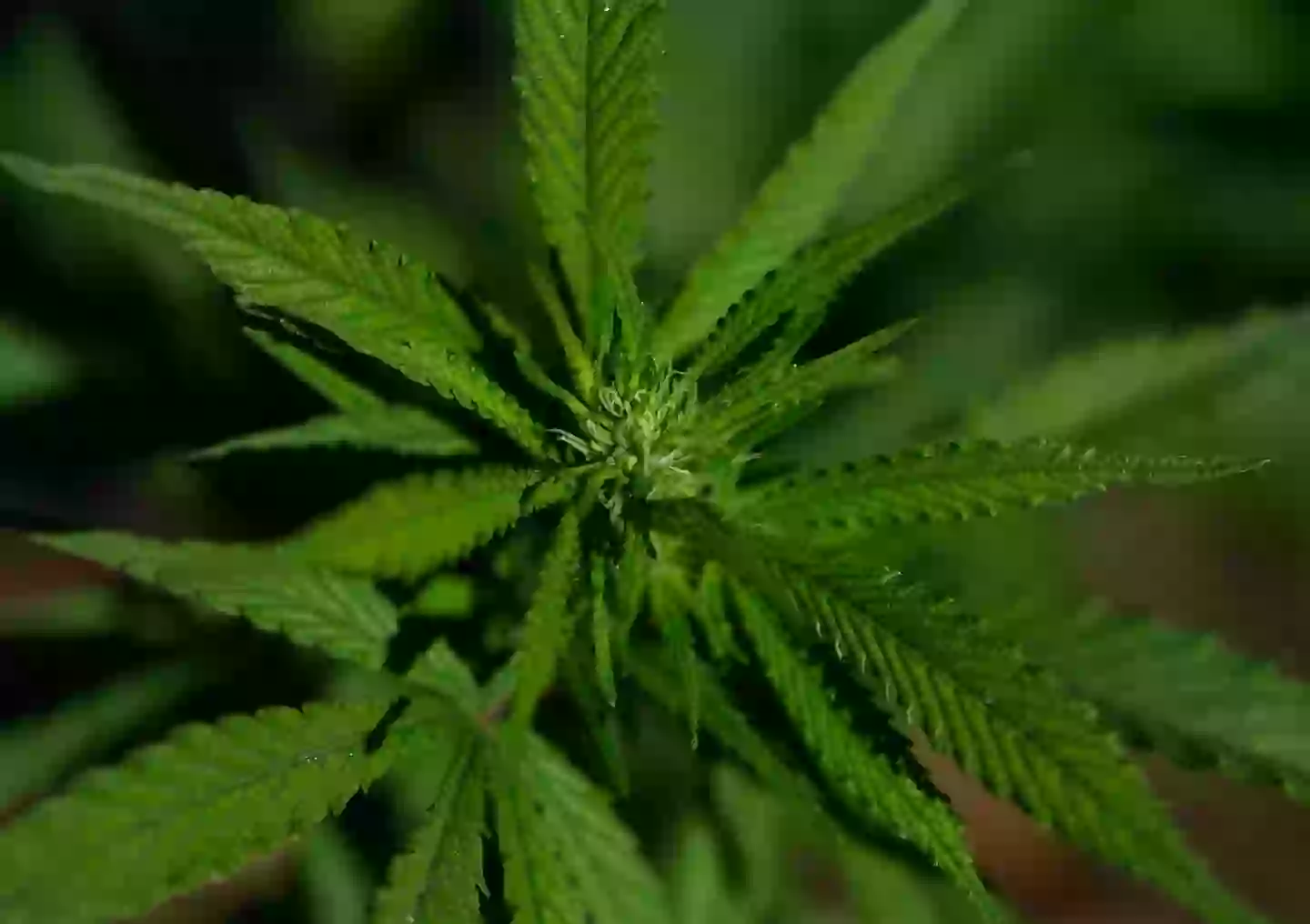
America’s cannabis laws can be a tricky subject to wrap your head around (Justin Sullivan/Getty Images)
What would happen if marijuana became a Schedule III drug?
If Trump were to go ahead and reclassify marijuana as a Schedule III drug, this would be a pretty big change up and down America.
According to the US government’s website, Schedule III drugs are defined as drugs ‘with a moderate to low potential for physical and psychological dependence’ and their ‘abuse potential is less than Schedule I and Schedule II drugs’.
Some examples of Schedule III drugs are products containing less than 90 milligrams of codeine per dosage unit, such as Tylenol with codeine, ketamine, anabolic steroids, and testosterone.
Meanwhile, Schedule I drugs are defined as drugs with no currently accepted medical use and a high potential for abuse.
Some examples include heroin, LSD, ecstasy, and as of right now, marijuana.
It’s important to note that the switch up would not make marijuana completely legal – it would just help ease restrictions and create more opportunities for medical uses and possible tax breaks for marijuana companies.
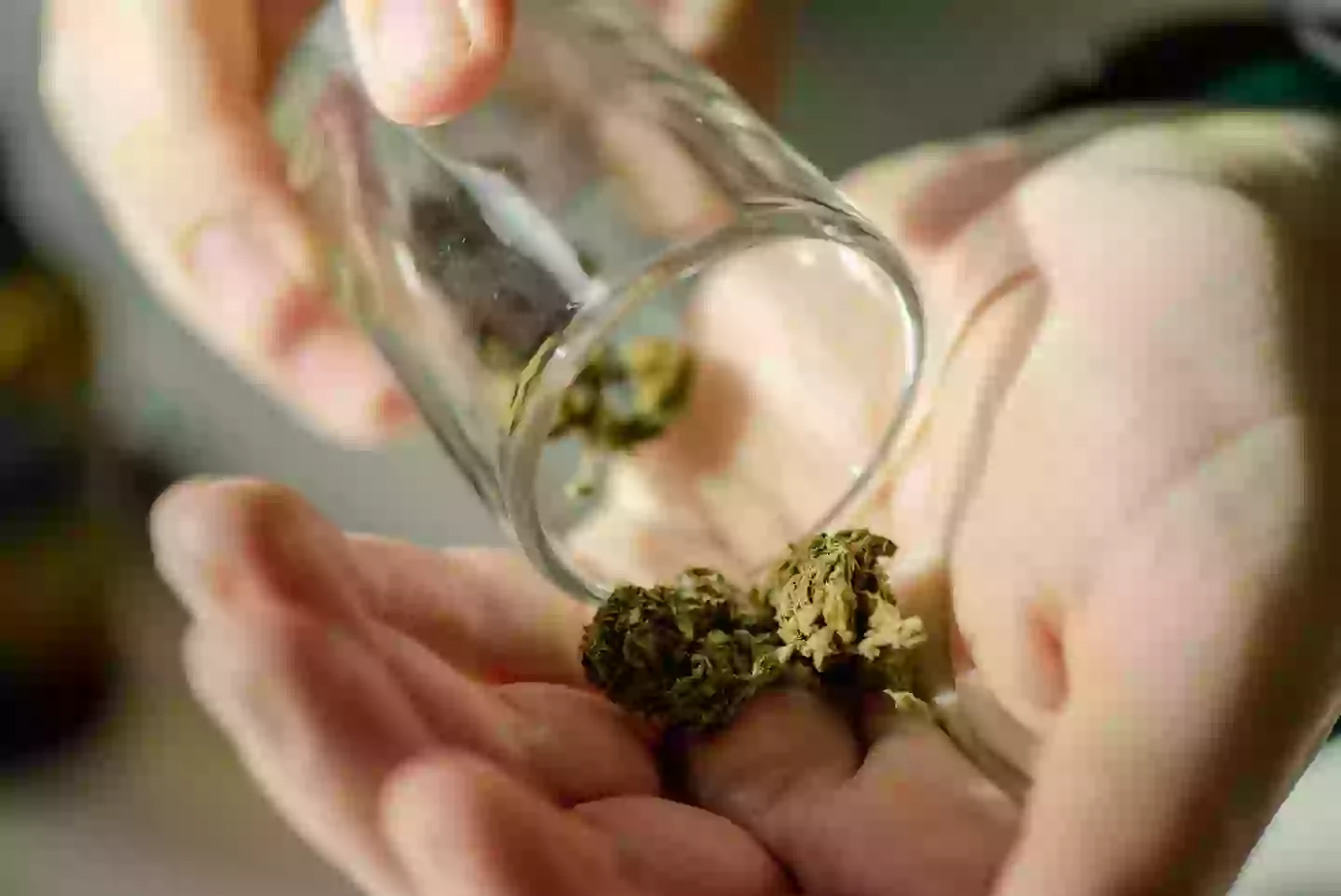
The Republican leader is said to be ‘looking at’ possibly switching marijuana from a Schedule I drug to a Schedule III drug (Emilija Manevska/Getty Images)
Which US states is marijuana currently legal in?
States where marijuana is fully legal:
- Alaska
- Arizona
- California
- Colorado
- Connecticut
- Delaware
- District of Columbia
- Illinois
- Maine
- Maryland
- Massachusetts
- Michigan
- Minnesota
- Missouri
- Montana
- Nevada
- New Jersey
- New Mexico
- New York
- Ohio
- Oregon
- Rhode Island
- Vermont
- Virginia
- Washington
States where marijuana is legal for medical purposes only:
- Alabama
- Arkansas
- Florida
- Georgia (CBD oil only)
- Hawaii
- Indiana (CBD oil only)
- Iowa (CBD oil only)
- Kentucky
- Louisiana
- Mississippi
- New Hampshire
- North Dakota
- Oklahoma
- Pennsylvania
- South Dakota
- Tennessee (CBD oil only)
- Texas
- Utah
- West Virginia
- Wisconsin (CBD oil only)
- Wyoming (CBD oil only)

Author: mscannabiz.com
MScannaBIZ for all you Mississippi Cannabis News and Information.
Mississippi Cannabis News
D.C. board rejects ANC 5A challenge to new medical cannabis retailer
Published
3 days agoon
September 12, 2025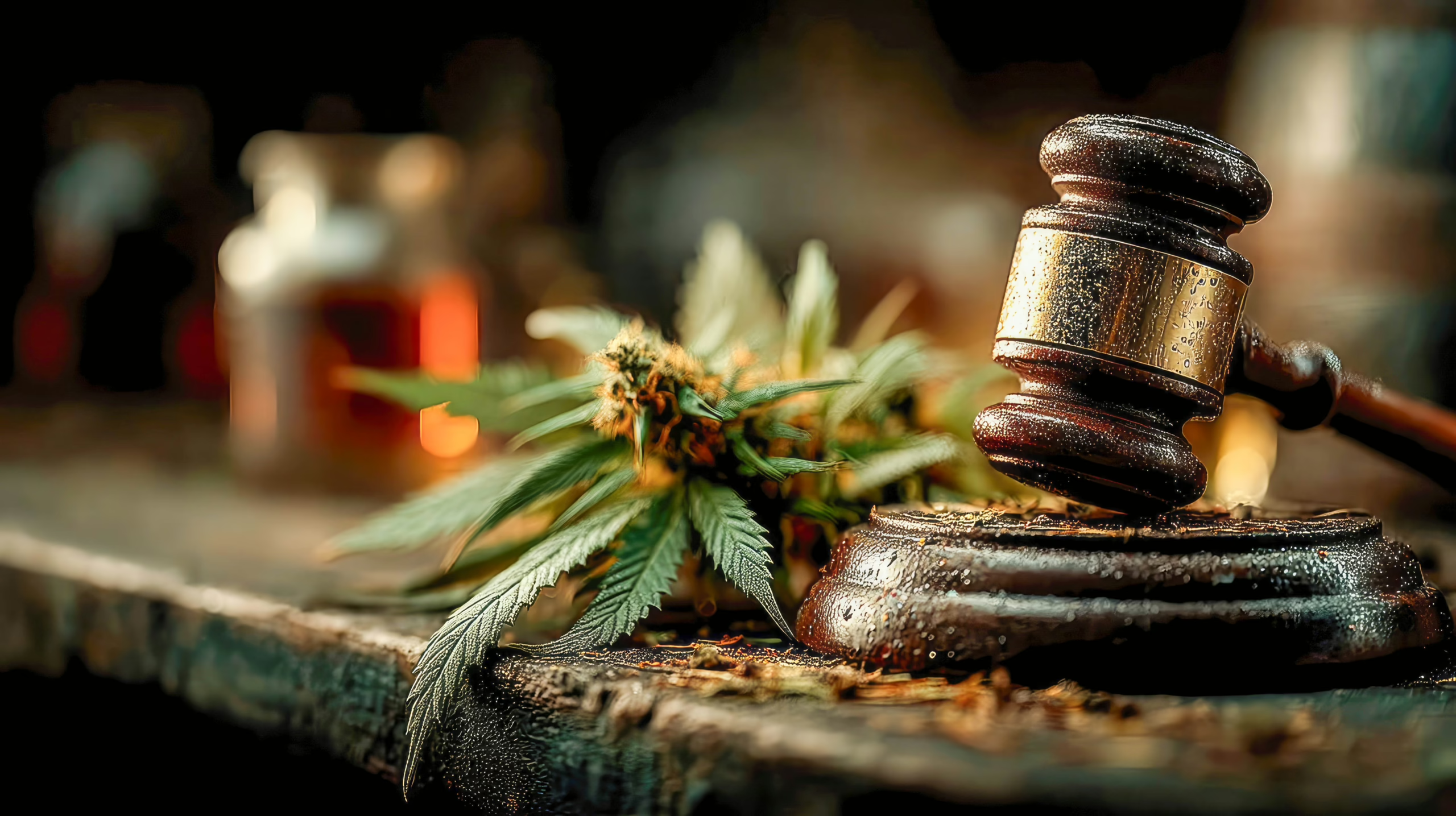
D.C. board rejects ANC 5A challenge to new medical cannabis retailer in Ward 5
The D.C. Alcoholic Beverage and Cannabis Board has rejected ANC 5A’s bid to reinstate its protest against a new Clinical Solutions medical cannabis dispensary in Ward 5, ruling that the ANC’s objections about daycare proximity and safety lacked the specific statutory grounds required to proceed; the license application remains on track, though the decision can still be appealed.
- Alt Sol was featured by wtop News.
- Catch up on today’s ABC Board meeting: watch, agenda.
- Sept. 24, Black Cannabis Week’s D.C. event, “From Prohibition to Policy.”
- A GOP-led House committee is advancing a bill to repeal Washington, D.C.’s Second Chance Amendment Act—which automatically expunges past cannabis possession records—framing the move as part of a broader “restoring law and order” initiative.
Workers protest at Maryland dispensary grand reopening over labor disputes
Cannabis workers and community members protested outside The Apothecarium’s grand reopening in Cumberland, Md., on Sept. 5, alleging the company engaged in union-busting and stalled contract negotiations since employees voted to unionize last year. UFCW Local 27 says workers are demanding fair pay and just cause protections, while the company has not yet issued a response.
Virginia’s 2025 gubernatorial race may decide future of legal cannabis market
Over half of Virginians have used cannabis, but the state currently lacks a legal retail market, though a bipartisan commission is studying its potential and the issue is expected to hinge on the 2025 gubernatorial election. Democratic candidate Abigail Spanberger supports establishing a regulated retail market to boost revenue and public safety, while Republican nominee Winsome Earle-Sears opposes legalization, citing cannabis as a gateway drug.
ICYMI: D.C. Dispensaries Boom, Trulieve Expands, Virginia Cannabis Hits a Turning Point
East Coast Roundup
Once a dominant force in Massachusetts‘ cannabis industry, Fitchburg-based Rev Clinics supplied products to approximately 75% of the state’s dispensaries. However, the company has faced significant challenges leading to its collapse.
A CBD shop in Connecticut shut down following allegations of illegal cannabis sales. The owner has agreed to a settlement.
New York’s licensed cannabis sales surpassed $2.09 billion, with over $1 billion generated in 2025 alone, indicating a robust and expanding market despite market turmoil.
The New York State Office of Cannabis Management announced the transition to the Metrc system for tracking cannabis from seed to sale will start in 2026.
Delaware’s recreational cannabis market achieved $7.3 million in sales during its inaugural month, signaling a strong consumer demand.
The Massachusetts Attorney General certified 44 ballot proposals for the 2026 election, including one aiming to repeal the state’s 2016 law legalizing recreational marijuana sales. This proposal, led by Sudbury resident Caroline Alcock Cunningham, seeks to shut down recreational dispensaries and impose civil penalties for public possession exceeding one ounce.
Culture & More
A new report highlights a significant rise in cannabis use among Americans aged 65 and older, with a 46% increase between 2021 and 2023.
USF Credit Union has introduced ‘Verde,’ a cannabis banking program aimed at providing financial services to the legal cannabis industry in Florida.
A new study found that THC can reach the human egg and may affect female fertility. Women who had THC in their follicular fluid showed a small increase in egg maturity but a lower rate of healthy embryos.
Around the Country
Mississippi’s medical cannabis program is expanding rapidly, with an average of 50 new patient cards issued daily. As of August 2025, the state has approximately 50,000 active cards, up from 40,000 in June 2024.
Texas retailers are relieved after the state legislature failed to pass a ban on THC products during the second special session. Despite this, Lt. Gov. Dan Patrick remains committed to a total ban, citing concerns over youth access.
California’s use of drones to monitor illegal cannabis cultivation led to unintended consequences, including the targeting of residents without cannabis operations. In Sonoma County, drone surveillance resulted in fines, evictions and legal battles for individuals who had no cannabis involvement.
From the swamp
Former Trump advisor Kellyanne Conway is reportedly a strong proponent of rescheduling cannabis, according to a GOP congressman. Her support adds a notable voice to the ongoing debate over federal cannabis policy reform.
OPINION: A Washington Post opinion piece argued that a loophole in the 2018 Farm Bill allows children access to psychoactive hemp-derived substances like delta-8 and delta-10 THC.
Employment Opportunity: DC Licensed Internet Retailer Dispensary Now Hiring. Contact info@getlocald.com to Learn More.

Author: mscannabiz.com
MScannaBIZ for all you Mississippi Cannabis News and Information.

Dozen arrested after south Mississippi bust for illegal sales to underage customers

The Toking Traveler: Why Amsterdam Weed Is Mostly Boof

Arkansas Medical Marijuana Sales Are On Track To Set A New Annual Record

When Cannabis Brands Blur Into Youth Culture, Regulators Notice: Lessons From Tobacco’s Past

Rhode Island Marijuana Dispensary License Application Process Officially Launches

Middle school student found with cannabis in bookbag, Charles County deputies say

Smugglers who brought drugs on an industrial scale into Wales jailed

Attorney pulls out bag of cannabis in NC Supreme Court hearing

WHO AM I? Man wanted for New Bern cannabis store theft

Cannabis packages under scrutiny

California authorities shut down nearly $30 million worth of illegal cannabis operations

A Green Light for Cannabis? Europe Waits While the U.S. Untangles the Red Tape

Move Over, Booze: Weed Drinks Pulled $1.1 Billion in U.S. Sales in 2024

Congressional Committee Votes To Repeal Marijuana Expungements Law In Washington, D.C.

Times Square Welcomed Its Brightest Cannabis Billboard Yet

Smoking Marijuana With A Water Bong Doesn’t Effectively Filter Compounds From Smoke, Study Suggests

A Beginner’s Guide for Watering Cannabis Plants

Massachusetts Lawmakers Approve Bill To Create Psychedelic Therapy Pilot Program

From the Dark Web to the Streets: Meet the Canadian Distributing Pure Cocaine to Save Lives

Congressional Committee Schedules Hearing On Chinese ‘Invasion’ Through ‘Illegal Marijuana’ Operations

Carmelo Anthony Marks Hall of Fame With Hall of Flame Cannabis Drop

California: Lawmakers Advance Legislation to Governor’s Desk Halting Tax Hike on Commercially Available Cannabis Products

Federal Agency Gives Anti-Marijuana Group A Platform To Make Claims About Legalization’s Impact That Aren’t Supported By Data

California Cannabis Excise Tax Going Back to 15% Next Month

Alert: Department of Cannabis Control updates data dashboards with full data for 2023

Connecticut Appoints The US’s First Cannabis Ombudsperson – Yes there is a pun in there and I’m Sure Erin Kirk Is Going To Hear It More Than Once!

5 best CBD creams of 2024 by Leafly

EU initiative begins bid to open access to psychedelic therapies
New Study Analyzes the Effects of THCV, CBD on Weight Loss

Free delta-9 gummies from Bay Smokes

5 best autoflower seed banks of 2024 by Leafly

Discover New York’s dankest cannabis brands [September 2024]

Press Release: CANNRA Calls for Farm Bill to Clarify Existing State Authority to Regulate Hemp Products

May 2024 Leafly HighLight: Pink Runtz strain

Curaleaf Start Process Of Getting Their Claws Into The UK’s National Health System – With Former MP (Resigned Today 30/5/24) As The Front Man

Local medical cannabis dispensary reacts to MSDH pulling Rapid Analytics License – WLBT

5 best THC drinks of 2024 by Leafly

Recreational cannabis on ballot for third time in South Dakota

Horn Lake denies cannabis dispensary request to allow sale of drug paraphernalia and Sunday sales | News

Mississippi city official pleads guilty to selling fake CBD products

6 best CBD gummies of 2024 by Leafly

Nevada CCB to Accept Applications for Cannabis Establishments in White Pine County – “Only one cultivation and one production license will be awarded in White Pine County”

The Daily Hit: October 2, 2024

5 best delta-9 THC gummies of 2024 by Leafly

Weekly Update: Monday, May 13, 2024 including, New Guide for Renewals & May Board meeting application deadline

PRESS RELEASE : Justice Department Submits Proposed Regulation to Reschedule Marijuana

5 best THCA flower of 2024 by Leafly

People In This State Googled ‘Medical Marijuana’ The Most, Study Shows
Trending
-

 California Cannabis Updates1 year ago
California Cannabis Updates1 year agoAlert: Department of Cannabis Control updates data dashboards with full data for 2023
-

 Breaking News1 year ago
Breaking News1 year agoConnecticut Appoints The US’s First Cannabis Ombudsperson – Yes there is a pun in there and I’m Sure Erin Kirk Is Going To Hear It More Than Once!
-

 best list1 year ago
best list1 year ago5 best CBD creams of 2024 by Leafly
-

 Business12 months ago
Business12 months agoEU initiative begins bid to open access to psychedelic therapies
-

 cbd1 year ago
cbd1 year agoNew Study Analyzes the Effects of THCV, CBD on Weight Loss
-

 Bay Smokes1 year ago
Bay Smokes1 year agoFree delta-9 gummies from Bay Smokes
-

 autoflower seeds12 months ago
autoflower seeds12 months ago5 best autoflower seed banks of 2024 by Leafly
-

 cannabis brands12 months ago
cannabis brands12 months agoDiscover New York’s dankest cannabis brands [September 2024]

